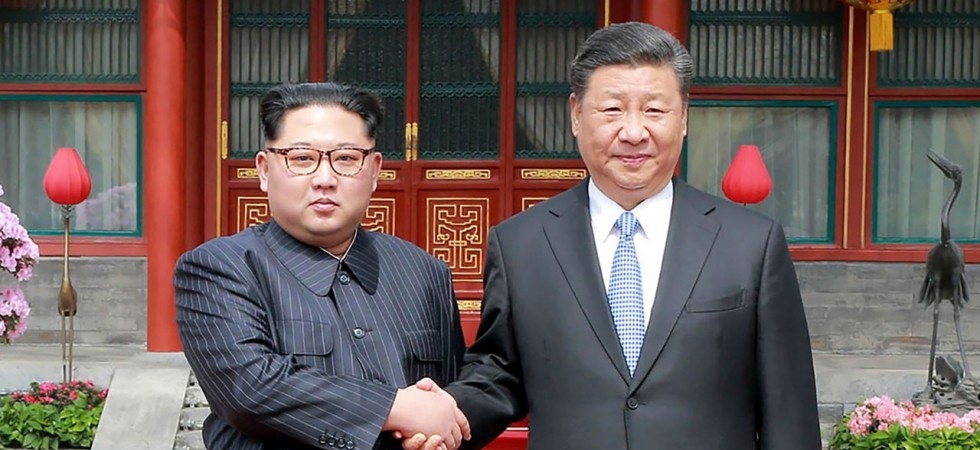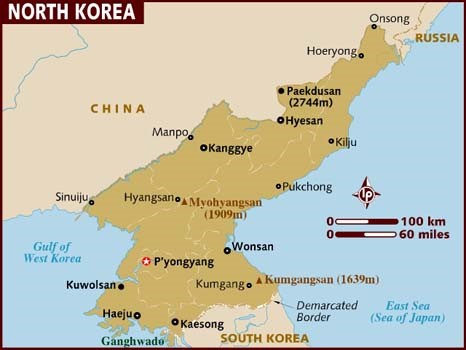China to be excluded?
April 30, 2018 | Expert Insights

Chinese foreign minister Wang Yi is due to meet Korean President Kim Jong-Un this week, in the wake of successful talks between North and South Korea. He will be the first Chinese foreign minister to visit Pyongyang since 2007.
Background
North Korea was formed in 1945, when colonial Japan withdrew from the peninsula and Korea was divided into two halves along the 38th parallel.
China has maintained its ties to North Korea post the Korean War. The two nations share a border of approximately 1,400 kilometres. In the 1970s, China developed military collaboration with North Korea, including on the ballistic missile program. During the period of severe food shortage between 1996 and 1998, Beijing provided unconditional food aid to North Korea.
Relations between the two nations began to decline after 2006, when North Korea tested its first nuclear weapon. The preeminent position that China occupied over North Korea began to decline when its current leader, Kim Jong-Un made several moves to assert his own independence. This signalled a major departure in the traditional ties between China and North Korea.
While there have been shifts in the political equation between the two neighbours, Beijing has remained North Korea’s largest trading partner. China's economic assistance to North Korea accounts for the majority of the aid received by North Korea. However, China does not support Kim’s nuclear programme, and has increasingly participated in international sanctions. In February 2017, China announced that it would be suspending all imports of coal from North Korea until the end of 2017. Pyongyang’s exports to Beijing have reportedly fallen by 35%.

Analysis
Tensions between North Korea and the rest of the world have thawed since the beginning of 2018, after months of aggressive rhetoric and missile tests. Budding diplomatic ties culminated in a summit between Kim Jong-Un and South Korean President Moon Jae-In, the first in over a decade, on April 27th. After a 65-year armistice, the two nations announced that they had agreed to officially end the Korean War and denuclearise North Korea. Kim Jong-Un is expected to meet US President Donald Trump in upcoming weeks.
Read more on the build up to these talks and North Korea’s possible motivations here.
It has been reported that Chinese Foreign Minister and State Councillor Wang Yi will now visit Kim Jong-Un in Pyongyang. This will be the first visit of this level in years. Observers have expressed their belief that this visit is likely a result of China’s fear of being left out of future negotiations in the peninsula.
Analysts from Chinese universities have remained sceptical on the North’s commitment to denuclearisation. Historians and specialists have noted that it would not be surprising if China was excluded from the talks. “The stance of China’s foreign ministry has been that [the North Korean nuclear crisis] is none of its business and that North Korea and the US should be communicating directly,” said Zhang Liangui from the Central Party School. “So now things are out of China’s control and it is no surprise that it is being excluded from the discussions.”
Analysts have also noted that the 1979 Sino-Vietnamese war, where China turned against one of its closest allies, could have damaged North Korea’s trust in Beijing. Chinese historian and North Korea expert John Delury said, “If there is one word that sums up the North Korean perspective on the history of their ‘alliance’ with China, it is probably ‘betrayal.’” Others have stated that US actions such as the heavy tariffs imposed on Chinese imports earlier this year, indicate that Washington does not believe it requires China’s assistance with Pyongyang.
Counterpoint
China remains Pyongyang’s most important economic and strategic partner. At the North-South summit, the two leaders signed the Panmunjeom Declaration for Peace Prosperity, and Unification of the Korean Peninsula. In the Declaration, the two Koreas agreed on trilateral or quadrilateral talks involving the US and China, with a view to denuclearisation, and “establishing a permanent and solid peace regime”.
The governments of China and North Korea also confirmed that North Korean leader Kim Jong-Un made an “unofficial” visit to Beijing in March 2018. It was the first time that the leader of the isolated nation had left North Korea since 2011. However, analysts questioned whether this was intended to showcase Beijing’s significance to North Korea, or if it was intended to be a token visit ahead of more important talks.
Assessment
Our assessment is that as Pyongyang’s largest trading partner, Beijing will continue to remain important to North Korea. We also believe that China will counter any move that could possibly increase US military presence in the peninsula. Russia, a major geopolitical power, would also not be in favour of increased US presence. We believe that Beijing will advocate for a multilateral discussion such as the proposed six party talks which included China, US, North and South Korea, Japan, and Russia.
Having said this, Pyongyang is in pursuit of being recognised as a responsible stakeholder in the comity of nations. Such a possibility would evolve if they are able to engage the United States. If the US is able to guarantee that there would be no regime change, China may lose the arbitrage it has in the Korean peninsula.








Comments